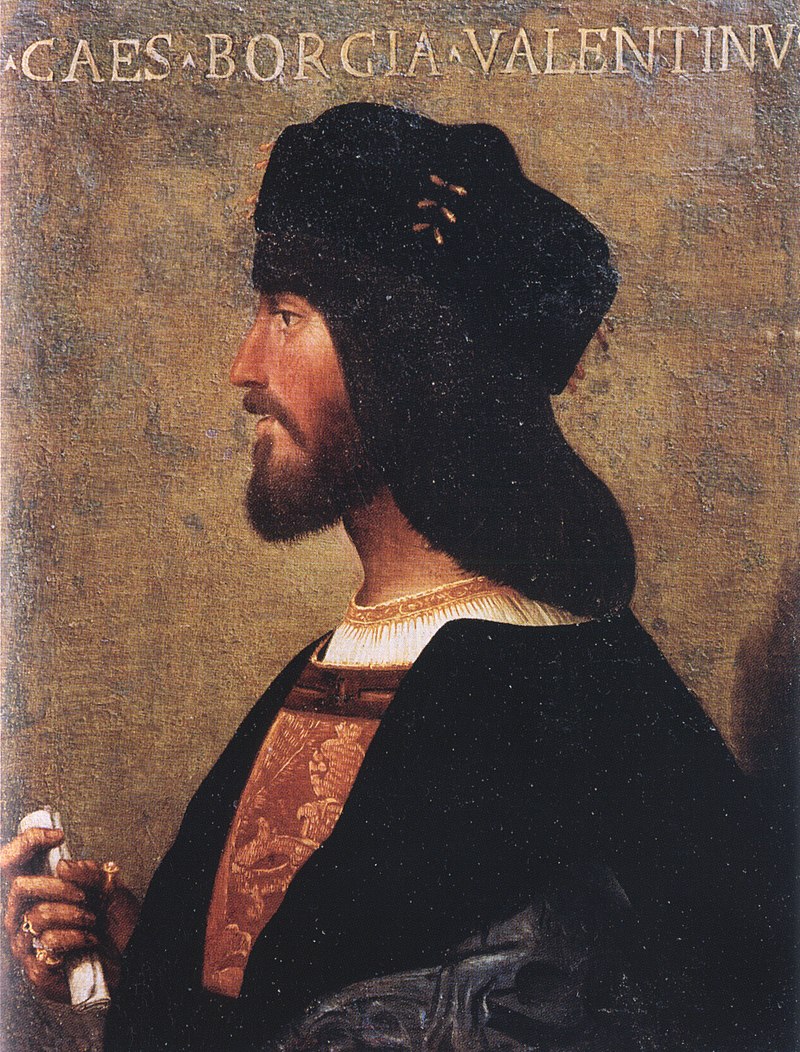The ephemeral kingdom of Valentino
Example of nepotism in Renaissance Italy

Portrait of Cesare Borgia - Wikicommons
"Caesar or nothing" — this was the motto of Cesare Borgia (1475–1507), which revealed his ambition for power and wealth. The illegitimate son — one of many — of the Spanish pope Alexander VI (Rodrigo Borgia), a pontiff of whom it was said “his vices far outweighed his virtues” and who was more concerned with material than spiritual matters, Cesare was presented with opportunities in both the ecclesiastical and political spheres of Europe, despite his illegitimacy.
Rodrigo Borgia, driven by a thirst for power, used his children—particularly Cesare and his sister Lucrezia—as pawns to consolidate his authority as pope and as a central figure in Italian and European politics. Cesare received a first-rate ecclesiastical education, earning a degree in law at Pisa in 1491 and becoming a bishop at the age of 15. In 1492, with his father’s ascension to the papacy, Cesare accumulated numerous titles, including Archbishop of Valencia and cardinal in Rome.
Cesare was a man devoted to warfare and pleasures, caring little for his ecclesiastical dignity except for the financial rewards it brought. In 1499, he received the Duchy of Valentinois from the King of France, earning him the title “Valentino.” Determined to secure a throne for his son (after the failed attempt to make him heir to France), Alexander VI granted Cesare several territories in Romagna, seizing them from their lords and creating a principality governed by Valentino. Meanwhile, Cesare had distinguished himself as a military leader for both the French and Papal armies, capturing Rimini, Ravenna, Forlì, and Pesaro.
In 1501, he signed a treaty of friendship between his principality and Florence. Despite his significant achievements and domains, Cesare’s power was tied to that of his father, the pope, and his involvement in numerous conspiracies made him increasingly unpopular. In 1503, after the death of Alexander VI, the new pope, Julius II, stripped Cesare of his territories in Romagna, leading to his downfall and exile in Navarre.
In 1506, Cesare escaped, but the following year, he was assassinated in a conspiracy while attempting to reclaim his lost domains. His power ended as swiftly as it had begun.
Antonio Spinosa, La saga dei Borgia. Delitti e santità, Mondadori, 1999
2025-08-29
Salvatore Ciccarello
